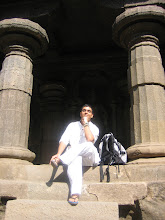Many of the great and influential works of Buddhist literature have already been translated into English (but we're still nowhere close to translating ALL of it...). Most of these works have been scriptures, like large chunks of the Pali Canon, the Perfection of Wisdom sutras, and the voluminous Avatamsaka Sutra. Other non-canonical works have also been translated including many other influential compositions, tantras, and poetry collections.
Interestingly, (or perhaps not so interestingly), many of the works translated thus far have been texts that resonate strongly with Western practitioners. These works, like many of the texts mentioned above, focus on things like meditation practice and elaborate psychological and phenomenological analysis in various forms. Many (but certainly not all!) of these texts also tend to shy from things that are generally off-putting to the average Westerner interested in Buddhism, namely faith and devotional practices. This emphasis partly explains, for example, the relative unpopularity of the Pure Land tradition in the West. This in spite of the fact that Pure Land is, by far, the most popular and widespread form of Mahayana Buddhism practiced in Asia.
Let me be blunt; I'm a geek, a nerd, and a techno-wonk. As a scientist by training, I get my jollies from studying really complex systems and figuring out complicated stuff. I'm always looking for some way to give myself a good mental workout, whether it's designing elaborate experiments in the lab or trying to learn ludicrously complicated languages. When it comes to my spiritual practice however, I prefer NOT to delve into such convoluted complexity. I enjoy and respond much better to simple and direct approaches to the Dharma. This 'simple and direct approach' explains my affinities for Theravada and Ch'an/Zen.
It is said there are 84,000 ways to practice Dharma (84,000 being the ancient Indian equivalent of 'a zillion') and while its true that many people take a highly intricate and analytical approach to their practice, I'll argue that the majority of people who follow the Dharma (including myself) whether ancient, modern, Eastern, or Western, are probably more concerned with the ordinary, day to day struggles and don't necessarily view any and all interactions through the lens of dense Abhidharma analysis, for example.
There's so much Buddhist literature out that's been focused on highly abstract and intricate topics, that I was pleasantly surprised to learn of a collection of stories which are, for the most part, the antithesis of 'typical Buddhist' books you'd find in a bookstore. This book does something uncommon in that it places emphasis on the emotional and inspirational dimensions of practice. This collection is known as the 'Divyavadana (दिव्यावदान)' and is usually translated as 'Divine Stories' or 'Heavenly Exploits'. Both of the titles, 'Divine Stories' in particular, may sound like an extravaganza of medieval European hagiography but this collection of stories from ancient Indian sources has influenced Buddhists, ancient and modern, from Gandhara to Nara.
Admittedly, I never even heard of the Divyavadana until recently. Like many of the books on my shelf, I came across a copy of Andy Rotman's recent translation in Moe's Books (The Greatest Used Bookstore in the Known Universe). It seemed interesting enough and also seemed like something I should be familiar with, given its far reaching historical influence. My motivation in reading this was simply to 'check it out for the heck of it' but little did I know that I'd be spirited away to a realm far beyond anything Miyzazki could dream up...
Saturday, August 29, 2009
Subscribe to:
Post Comments (Atom)








No comments:
Post a Comment